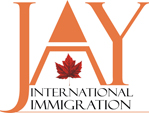
Individuals who are not Canadian or permanent resident of Canada and wishing to work in Canada require a work permit. However, there are some exceptions to this rule. Contact our office to find out if you require a work permit to work in Canada. A Canada Work Permit is only issued once an offer of employment has been made. A Work Permit is not an employment contract but, is a document that is issued by Immigration, Refugees and Citizenship Canada (IRCC) formally Citizenship and Immigration Canada for the purpose of allowing an individual to work in Canada to fill a labour shortage, and to support economic growth in Canada.
A work permit is issued when a work permit application is accepted. More often than not, work permits are employer specific and cannot be used to work in another company. If a foreign national employment is terminated, the foreign national must apply for a new Work Permit in order to work in a new position. However sometimes, an open work permit can be obtained by a foreign national. An open Work Permit allows a foreign national to work in any position, and for any employer in Canada.
There are two types of Work Permits: Confirmed LMIA Employment (ESDC Confirmed Employment, Labour Market Impact Assessment); and Confirmation Exempt Employment (ESDC Exempt Employment).
ESDC Confirmed Employment requires an approval from Employment and Social Development Canada (ESDC). If a confirmed employment is obtained, it simply means that there are no other permanent resident or Canadians qualified to fill the position. In order obtain a positive LMIA, an employer must provide information of the position being offered, proof of their recruitment efforts in Canada, and evidence that they were no permanent resident or Canadian available to fill the position.
The ESDC outside Employment allows for an expedited processing. The categories of work that are under the ESDC Exempt Employment are:
1.North American Free Trade Agreement professionals, traders and investors. The regulation also allows the issuance of Work Permits to people who enter Canada under other types of international agreements such as the General Agreement on Trade in Services (GATS).
2. Persons whose employment in Canada provides similar employment to Canadians abroad, such as participants in youth exchange programs, exchange teachers and other reciprocal programs.
3. Abroad students studying in Canada who need to work in order to fulfill co-op placements.
4. Abroad students in Canada applying under the Off-Campus Work Permit program.
5. Foreign students in Canada seeking to purse post-graduate employment.
6. Spouses and common-law partners of skilled workers, spouses and common-law partners of certain foreign students, spouses and common-law partners of a person doing post-graduation employment for certain foreign students and post-doctoral fellows.

 Info@jayimmigration.com
Info@jayimmigration.com (1)416 820 1822
(1)416 820 1822
